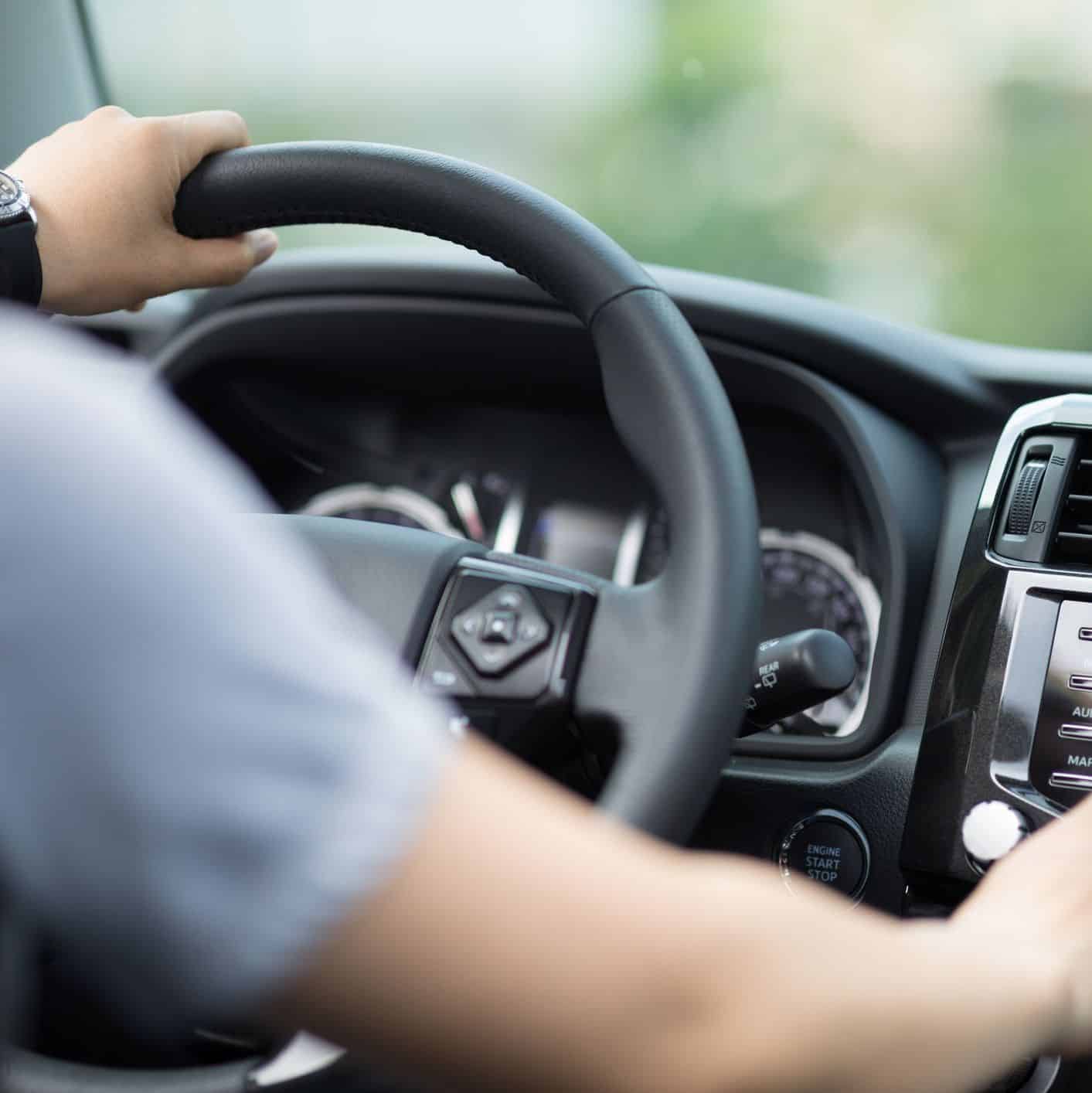According to the California Office of Traffic Safety, “young adults” are especially likely to commit Driving Under the Influence (DUI) offenses. A DUI conviction can drastically alter a young defendant’s life. With a DUI on their record, it may be difficult to gain meaningful employment, secure reliable housing, and attend college.
Parents who wish to help their children avoid these consequences may choose to work alongside qualified DUI defense lawyers in California. The first step in this process is to gain a complete understanding of the various laws that pertain to underage drinking and driving in California.
The two most notable laws are “Under 21 DUI” (California Vehicle Code “VC” 23136) and “Driving with 0.05 BAC When Under 21” (VC 23140).
If you or your loved one has been charged with an under-21 DUI, contact an experienced DUI defense lawyer – such as Gressley & Donaldson. We’ve seen countless variations of DUI cases, and we can help you make a plan.
What is the Definition of California’s “Zero Tolerance” Law for Underage Drinking and Driving (Vehicle Code 23136)?
Vehicle Code 23136 outlines penalties for underage drinking and driving in California and highlights higher overall standards for underage drivers. This zero tolerance law states that even if an underage driver has a BAC (blood alcohol concentration) level of just 0.01 percent, they are breaking the law. In other words, an underage driver cannot drink any alcoholic beverages before getting behind the wheel in California.
VC 23136 defines underage drivers as those under the age of 21. Note that a BAC level of 0.01 would have a minimal effect on an average person’s driving abilities, and this section states that an underage driver can face consequences even if they are not impaired. On the other hand, adults may only face DUI convictions if prosecutors can prove that their driving abilities were impaired by alcohol.

Why Is It Called the “Zero Tolerance” Law?
Under 21 DUI (VC 23136) is called the “Zero Tolerance” law for two reasons: First, underage drivers must have BAC levels of zero while operating vehicles. In addition, defendants can break this law even if they are experiencing zero impairment behind the wheel.
What Is the Penalty for Violating Vehicle Code 23136?
A violation of VC 23136 is not a criminal offense, but rather a civil offense. As a result, there is no possibility of incarceration under this section.
Instead, an underage driver faces a citation and a mandatory one-year license suspension after violating VC 23136. If the underage driver has a history of committing these offenses, they may face a suspension of up to three years. If they do not yet have a driver’s license, they may need to wait one year after their citation to obtain one from the Department of Motor Vehicles (DMV).
The DMV will issue a temporary license to drivers cited for this offense. After 30 days, the temporary license will become invalid, and the suspension will go into effect. Note that an underage driver can request a DMV hearing within the first 10 days of this 30-day period. If the hearing leads to a favorable decision, the driver may avoid the one-year license suspension and continue driving with no further issues. Qualified DUI defense attorneys in California can represent underage drivers during DMV hearings and pursue positive decisions on behalf of their clients.
Penalties for Refusing Alcohol Tests Under VC 23136
VC 23136 also states that underage drivers must consent to preliminary screening tests or chemical tests (like a breath test) to determine their BAC level. Again, this represents a much higher standard compared to adult drivers. In an adult DUI scenario, the driver can legally refuse preliminary alcohol tests (such as the Breathalyzer) with no consequences. These tests only become mandatory after arrests.
In contrast, VC 21316 states that an underage driver gives their “implied consent” to all preliminary alcohol tests – even before arrests. As long as the underage driver was “lawfully detained” by a police officer, they face penalties for test refusal.
Test refusal generally leads to a one-year license suspension. Note that the DMV adds this suspension period to the underlying VC 21316 citation – resulting in a total suspension of at least two years.
Additional Consequences for VC 23136 Citations
Aside from a suspended license, there are many other consequences to consider for VC 23136 violations. Some of these consequences may not be obvious at first.
Underage drivers and their families could face fines of $100 or more. Drivers over the age of 18 may need to complete alcohol education classes, and they must pay for these time-consuming classes themselves.
Although a VC 23136 citation is not a criminal offense, this blemish may remain on a driver’s record indefinitely. Assuming the driver never pursues an expungement, this citation could appear during college and job applications. Drivers may also face legal requirements to report their past DUI citations when applying for jobs or college enrollment.
What Is The Definition of an Underage Driver with a BAC of 0.05% or Higher According to Vehicle Code 23140?
Vehicle Code 23140 also applies to underage drinking and driving, but it specifically targets those who have higher BAC levels. An underage driver violates Vehicle Code 23140 if they drive with a BAC level of 0.05 percent or more.
It is important to understand that an underage driver can violate this section “regardless of whether a chemical test was made.” In other words, prosecutors can attempt to argue that your level of intoxication was probably over 0.05 percent without even referring to a chemical test result to back up their claims.
That said, a VC 23140 violation usually involves a chemical test of some kind that clearly indicates the driver’s BAC level.
What Is the Penalty for Driving with a BAC of 0.05% or Higher?
While VC 23136 can only lead to civil offenses, a VC 23140 violation is a criminal offense and an “infraction.” As a result, the DMV has no authority over this situation, and the criminal justice system will handle the case instead. Instead of attending a simple DMV hearing, underage drivers will need to go to court.
However, there is still no possibility of incarceration. Instead, the penalty is a one-year license suspension for a first offense, a fine of $100, and the potential for mandatory alcohol education classes for those over 18. VC 23140 may also lead to additional penalties for test refusal. Perhaps most notably, the same implied consent laws apply – and underage drivers face penalties for refusing even preliminary tests.
The long-term consequences of a VC 23140 infraction can be more serious than citations under VC 23136. Generally speaking, DUI-related criminal offenses remain on driving records for 10 years. Even after this period, the infraction can remain on a criminal record permanently without an expungement. This poses numerous potential barriers to employment and post-secondary education.
You Can Be Charged with Multiple Underage Driving Offenses
It is important to understand that VC 23136 and VC 23140 are not mutually exclusive, and an underage driver can face penalties for both offenses at the same time.
VC 23136, VC 23140, and a test refusal may all result in a one-year license suspension. All of these one-year suspensions often combine to create a three-year total suspension period.
For example, a 20-year-old driver may refuse a Breathalyzer test after a traffic stop. The officer may then arrest the driver, and a chemical test may subsequently determine that their BAC level is 0.06 percent. This could potentially constitute all three offenses, and the individual may need to wait until age 23 before driving again.
What Are the Defenses for VC 23136 and VC 23140?
You Were Not Lawfully Detained
Underage drivers only need to consent to preliminary alcohol tests if they were “lawfully detained” by police officers. A viable defense strategy may argue that the detention was unlawful, as this would theoretically make the test results inadmissible in court. Without these test results, it is very difficult for the DMV or prosecutors to establish BAC levels.
Generally speaking, police must have a valid reason to pull over drivers. If you were not doing anything wrong and the police pulled you over anyway, you could potentially argue that your detention was unlawful.
Unlawful detention may also involve illegal searches, police ordering you to do something inappropriate or illegal, discrimination, or excessive force.
Finally, a detention could be unlawful if the officer failed to inform you of your rights.
The Test Results Are Not Accurate
Alcohol tests may be unreliable for a number of reasons. Establishing a BAC level of 0.01 percent requires extremely sensitive equipment, and even a slight miscalibration can cause incorrect results. Human error can also cause inaccurate results even with a properly calibrated Breathalyzer device. Officers must follow very specific steps when administering these tests.
Aside from alcohol, various other substances may trigger a 0.01 percent reading. Examples include fermented foods and drinks, such as horseradish or kombucha. A wide range of medications and diets can also cause a BAC reading of 0.01 percent.
You Were Not Driving
Underage drivers may argue that they were not driving the vehicle. For example, a driver may have been sitting in a parked car, and there may be no evidence that they recently operated the vehicle. Perhaps a 23-year-old driver convinced a 20-year-old passenger to switch seats while a police officer approached.
Can You Face “Adult” DUI Charges if You Are Under 21?
Underage drivers face the same penalties as adult drivers for “standard” DUIs. As long as your BAC level is over 0.08 percent, you may face a misdemeanor DUI. Unlike underage driving offenses, a standard DUI can lead to incarceration.
Although probation is common for first offenses with no injuries, it is possible to spend six months behind bars after even a minor DUI conviction. You will also face potentially high fines, and your license will be suspended.
Note that if you drive with a BAC of over 0.08 percent while underage, you will face these penalties in addition to all of the other aforementioned offenses.

What Are Additional Charges for Underage DUIs?
Underage DUI penalties could be accompanied by a range of other charges. These include various traffic infractions such as speeding, reckless driving, and drag racing. In addition, you may face heightened DUI penalties if your arrest involves certain aggravating factors. These might include injuries, deaths, property damage, prior convictions, and child endangerment.
Note that child endangerment is a common offense among underage drivers, since many have passengers that fall under the category of “minors” according to California law. It is possible to face felony charges for the most serious DUI offenses.

Contact a DUI Defense Lawyer in California Today
While gaining a more complete understanding of underage DUI laws in California is helpful, it is only the first step. To assess the most appropriate defense strategy, parents and young adults must consider the unique factors involved with their charges.
Consult with a qualified DUI defense lawyer in California, and you can discuss these factors in more detail while approaching charges in an efficient, confident manner. Reach out to Gressley & Donaldson today to begin this important process.
Frequently Asked Questions
Yes, it is possible to challenge a suspended license during a DMV hearing in California. During this hearing, you will have the chance to tell your side of the story and explain why your license suspension is unjustified.
Yes, an underage driver can petition the DMV for a restricted driver’s license after a DUI conviction. However, these petitions will only be successful if the underage driver demonstrates a critical need to drive.
You are only eligible to receive a restricted license after a DUI conviction if you can demonstrate that you have no other means of reliable transportation. Note that this applies to all DUI convicts – and not just those under 21.
You must prove that your critical need to drive is based on educational, medical, or employment requirements. In addition, you must show that all other transportation options (including public transit) are either impractical or overly expensive.


